Tun M wants JAKIM’s functions to be reviewed. Actually, what DO they do?

- 3.5KShares
- Facebook3.4K
- Twitter17
- LinkedIn18
- Email15
- WhatsApp95
[Artikel ini diterjemah daripada rakan-rakan kami kat SOSCILI. Kalau anda nak baca artikel asal dalam BM, klik sini!]
Since Malaysia got a new government, we’ve been seeing a lot of press conferences, and as a result of some of those, several disbanded agencies, like the SPAD, the Majlis Profesor Negara (MPN), JASA, and the JKKKP. In addition to these agencies, there have been talks on other agencies that might get disbanded in the near future as well, and one of them is the Jabatan Kemajuan Islam Malaysia (JAKIM).
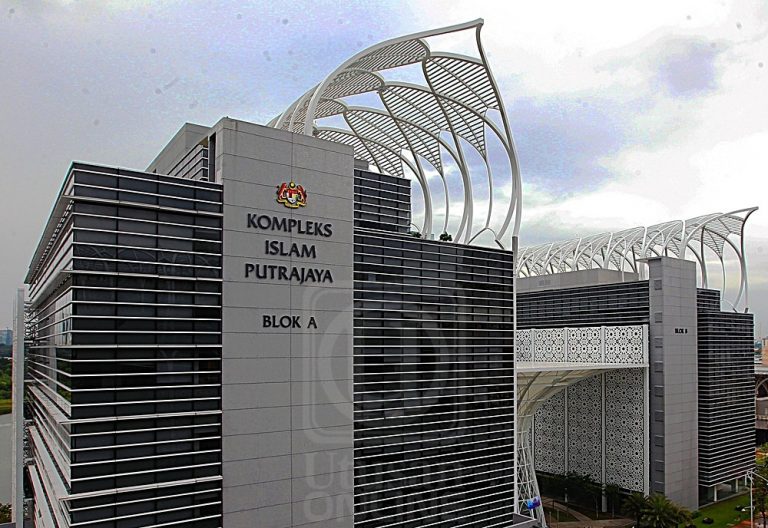
In reaction to that, Tun Mahathir clarified that the government hasn’t thought of disbanding JAKIM just yet, but they will review the agency’s functions.
“We will ensure that it would not portray Islam as a cruel and inconsiderate religion. That is not what Islam is,” – Tun M, to the Malay Mail.
A day after that, Tawfik Ismail, former MP and son of the late Tun Dr Ismail (former Deputy PM) had said that there is no more need to review JAKIM, as it should be abolished.
So, review, abolish or maintain? JAKIM can be said to have changed a lot since its foundation, but going back to the start…
JAKIM was formed during Tun Mahathir’s previous reign as Prime Minister
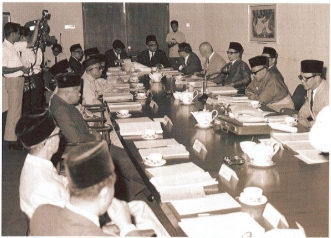
Before 1997, there was no JAKIM. Instead, there was something called the MKI, which stood for Majlis Kebangsaan Bagi Hal Ehwal Ugama Islam Malaysia (National Council for Islamic Matters Malaysia), under the Prime Minister’s Department (JPM). MKI started functioning in 1970, and besides discussing Islamic matters, they were also responsible for the establishment of other Islamic agencies in Malaysia, such as the Islamic Research Center (PPI), the Yayasan Dakwah Islam Malaysia (YADIM) and the Maktab Perguruan Islam (MPI).
When the Federal Territory was formed in 1974, the MKI was upgraded into the Religious Division of the JPM. 10 years after that, the division was again upgraded and became known as the Bahagian Hal Ehwal Islam (BAHEIS). It was still under the JPM, but at that time it already has 14 branches that deal with matters such as Islamic education, preaching to the Orang Asli, research, and many more.

Finally, in 1997, the government decided that they wanted to make BAHEIS a better agency, and JAKIM came into being. According to Dr Mohd Fauzi Shaffie (President of Pertubuhan Jati), the formation of JAKIM was done through the consent of the Conference of Malay Rulers. Four new branches were added to the existing 19, and the agency was given its very own Head Director, but it remained under the JPM. Tun Mahathir being the PM in 1997 was evidence enough that he was one of the people responsible for JAKIM’s formation.
So now that we know how it came into being…
What exactly does JAKIM do? And do they have any power?
Other than the halal logos, a lot of people might be wondering what this agency does anyway. Well, according to JAKIM’s website, the agency had three main functions, and they are:
- Drafting and standardizing Syaria Laws.
- Coordinating Islamic Administration.
- Coordinating and developing Islamic Education.
To put things in perspective, while Islamic matters are under the purview of each individual state, JAKIM is the body that handles such matters at the Federal level. As such, their functions are mostly making sure that each state’s Islamic institution and laws don’t contradict each other. Their other functions include:
- Drafting a development policy for Islamic matters in the country.
- Help draft and standardize laws and regulations.
- Coordinating the enforcement mechanism for laws and regulations related to Islamic matters throughout the country.
- Reviewing programs related to Islamic matters done in the country.
- Acting as a gatherer and spreader of Islamic information and as an information reference center.
To make it easier to understand, there are many versions of Islam out there, and often these versions clash with each other. JAKIM decides on which version Malaysia should follow, and makes sure that Islamic laws, information and Islamic programs in Malaysia follow that version.
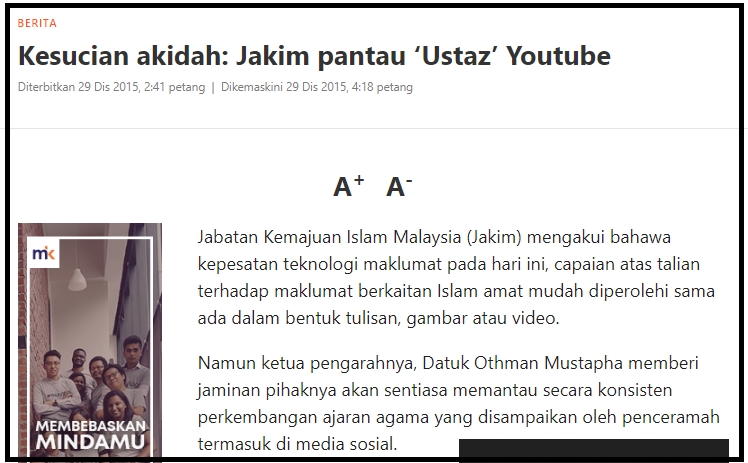
But other than that, does JAKIM have any other power? Like, can they arrest people who skip puasa or fornicating Muslims? According to Dr Hazmi Rusli, USIM’s law expert, no.
“Only the police and Syaria enforcement officers have the power to arrest.” – Dr Hazmi Rusli, to SOSCILI.
So the guys who kekblocks couples in hotels and cart off non-fasting Muslims in hearses are often under State Islamic Departments (JAIN) and Federal Islamic Departments (JAWI) for federal territories and not from JAKIM. However, JAKIM still got powers in other matters, like halal certification.
Halal certificates may be JAKIM’s most prominent function

The halal trade is a lucrative one, and it’s growing at a promising rate. JAKIM’s halal certification had been said to be one of the world’s best, so good that when Brazil wanted to export meat to West Asia, they were asked to get a halal certificate from Malaysia first.
“West Asian countries permit Brazil to market their meat in their countries under the condition that Brazil gets halal certification from us,” – Datuk Dr. Asyraf Wajdi Dusuki, former JPM deputy minister, translated from Kosmo.
According to a Federal Gazette, the ones with authority to acknowledge and certify halal-ness are the JAKIM and JAIN, so even if a product has a halal certificate from other sources, they would still have to be acknowledged by JAKIM as well. And even though halal certification is said to be done by both JAKIM and JAIN, a bulk of the implementation procedure depends on JAKIM, so it’s not a stretch to say that Malaysian halal certificates are handled by JAKIM as a religious body that represents the Federation. Even the halal logo is known as the JAKIM halal logo.
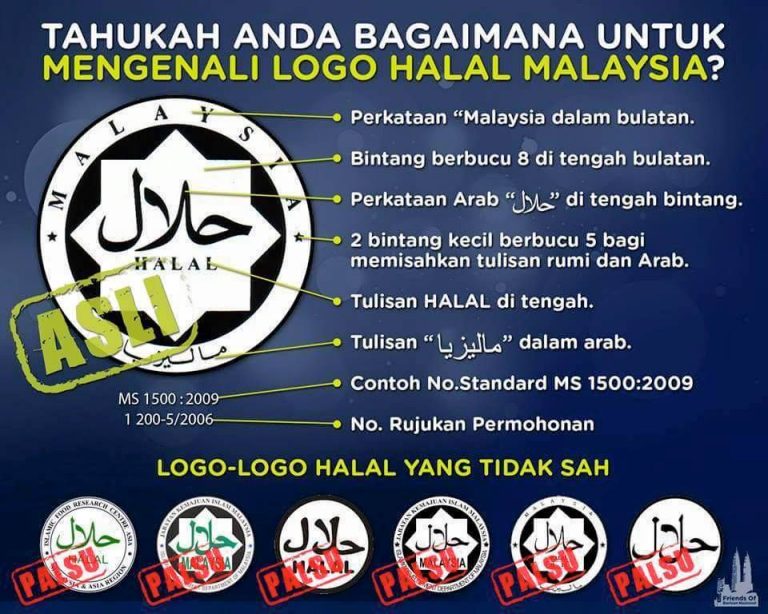
So who will be tasked with halal certification should JAKIM be abolished?
“…if JAKIM is to be abolished, it’s highly probably that halal certificates will be issued by the Prime Minister’s Department (JPM), as JAKIM itself in under the JPM… JPM might establish a new agency to replace JAKIM if it is abolished.” – Dr Hazmi Rusli, to SOSCILI.
Regardless of halal certs, when everyone was talking about JAKIM early last February, Tengku Razaleigh raised an interesting point by saying that JAKIM is actually unconstitutional. So…
Is JAKIM constitutional or not? There are two views on this issue.
“JAKIM is unconstitutional. When he (Dr Mahathir) was in power, he saw PAS as a threat. Therefore, he went on with his Islamic plans, like JAKIM for example.” – Tengku Razaleigh Hamzah, UMNO veteran, to Free Malaysia Today.
So Tengku Razaleigh saw JAKIM as Dr Mahathir’s way of competing against PAS in the past. But is the unconstitutional part real? According to Nizam Bashir, a syaria lawyer, JAKIM is indeed unconstitutional, established through executive action (the rulers), when it was supposed to be established through laws that clarify its jurisdiction. This is because Islamic matters are under a state’s purview.
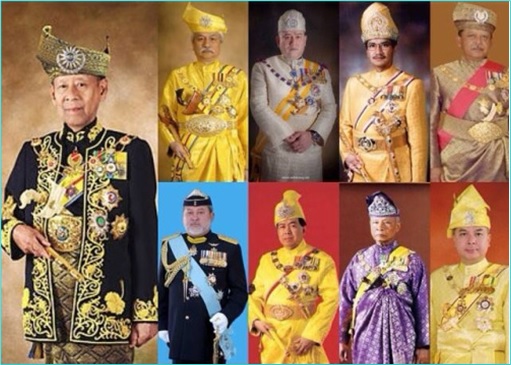
However, this view was rejected by some law practitioners, like Datuk Zainul Rijal, the president of Malaysia’s Muslim Lawyers’ Association (PPMM). He agreed that most Islamic matters are indeed under a state’s purview, but not all of them. Some federal laws approved by the Parliament touched on Islamic practices, for example:
- Traditional and Complementary Medicine Act 2016 (Act 775)
- Printing Presses and Publications Act 1984 (Act 301)
- Tabung Haji Act 1995 (Act 535)
- Islamic Banking Act 1983 (Act 276), repealed and replaced by the Islamic Financial Services Act 2013 (Act 759)
- Printing of Quranic Texts Act 1986 (Act 326)
To understand how this ties back to JAKIM, let’s look at Act 775 for example. The Traditional and Complementary Medicine Act has within it allowances and recognition for Islamic medicine. Without JAKIM, the Ministry of Medicine would need to consult with all 14 State Islamic Departments to determine what constitutes as Islamic medicine in Malaysia, which sounds like a lot of work tbh.
“So, JAKIM is the entity to refer to, and it fits the allowances of the Federal Constitution in its Ninth Schedule, List I Item 4(k) that sets forth that the Federal Government has the power to ascertain Islamic law and other personal laws for purposes of federal law,” – Datuk Zainul Rijal, translated from Utusan Malaysia.
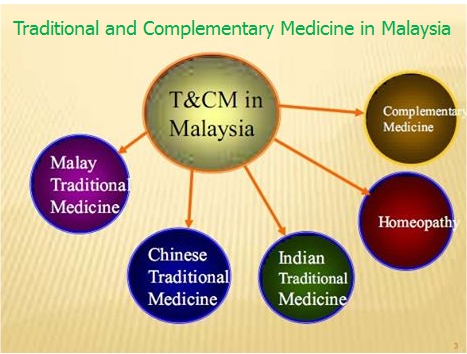
The same goes for the Tabung Haji Act, when matters like haji quotas, visas and others are handled by the Federal entity.
“This is because the international relationship between Malaysia and Saudi Arabia is handled by the Federal Government. The Arab government won’t be negotiating with each of the states for these matters. So an entity at the federal level has to carry out these functions.” – Datuk Zainul Rijal, translated from Utusan Malaysia.
According to Dr Mohd Fauzi Shaffie (President of Pertubuhan Jati), even though powers relating to Islam was placed under the states, there’s nothing that said it can’t be coordinated at the central level.
“Even the MKI rule in 1968, through the consent of the Council of Rulers, have justified that Islamic matters can (and a part of it, must be) coordinated at the central level.” – Dr Mohd Fauzi Shaffie, to SOSCILI.
Dr Hazmi, on the other hand, had denied that JAKIM is unconstitutional as it was in line with Article 3(1) of the Federal Constitution that states that
“…Islam is the Federal religion… So it’s not wrong for the government to establish a specialized agency to govern religion as the place for Islam in Malaysia is higher than other religions.” – Dr Hazmi Rusli, to SOSCILI.
Regardless of whether it’s constitutional or not, Tun M had clarified that JAKIM will not be abolished, only reviewed to correct the perception of people towards it. In line with that…
JAKIM needs to change to stay relevant
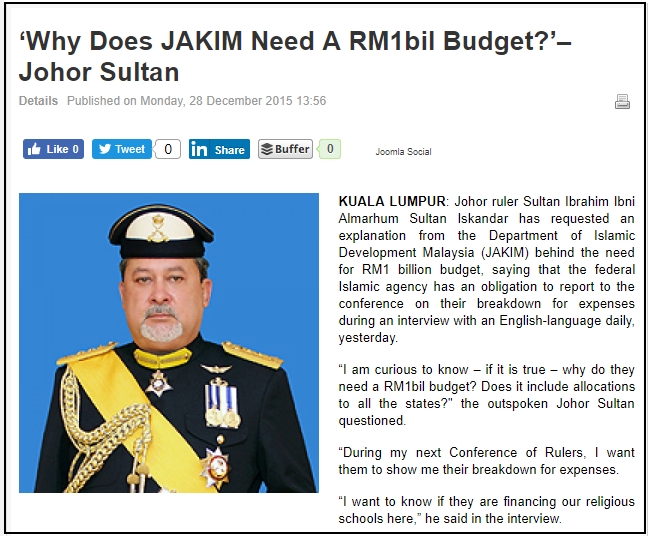
According to Dr Mohd Fauzi, every human-made institution can be reviewed and improved. And in JAKIM’s case, if the plan really is to improve it, then reviews are a must. However, due to the large implication of abolishing JAKIM, it should not be abolished just yet.
“Abolishing JAKIM means blocking all efforts to develop Muslims and other Islamic institutions, which cannot be done without the cooperation of the Central Government.” – Dr Mohd Fauzi Shaffie, to SOSCILI.
Because of that, if JAKIM is to stay relevant, then improvements have to be made. According to a reporter, JAKIM can’t be saturated with their sole agenda of apposing religious liberalism. They must come up with a new authority.
“JAKIM needs to be a peaceful center when it comes to handling the collision of western human rights ideology and Islamic fundamental issues. Of course, in this context, we hope for JAKIM to protect the sanctity of Islam.” – Zainal Rashid Ahmad, writer and reporter, for the Malaysian Insight.
Dr Fauzi felt that if JAKIM’s role is to be changed, the government must ensure that JAKIM’s current functions be fulfilled by a more capable, constitutional institution. For now, many are still sure of JAKIM’s place in Malaysia, so JAKIM must not ignore that trust.
“I just felt that their enforcement needs to be more prudent, according to Islam which endorses preaching through wisdom. Aggressive actions can make JAKIM not liked by the people, and this will impair its function.” – Dr Hazmi Rusli, to SOSCILI.
- 3.5KShares
- Facebook3.4K
- Twitter17
- LinkedIn18
- Email15
- WhatsApp95



